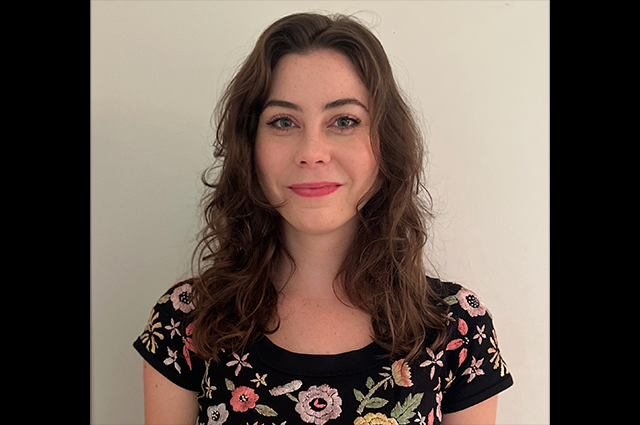Alum named to CDC fellowship

Tufts alum Caitlin Duffy, E18, was recently matched to a host site as part of the U.S. Center for Disease Control and Prevention’s Public Health Informatics Fellowship Program, a two-year paid fellowship to apply technology and information science to the practice of public health. Her appointment will start in August 2023 at that host site: the Scientific and Program Services Branch within the Division of Preparedness and Emerging Infections at the National Center for Emerging and Zoonotic Infectious Diseases. Duffy earned a BS in Environmental Engineering from Tufts in 2018, with a second major in French, and is currently completing an MPH at the Rollins School of Public Health at Emory University.
The School of Engineering spoke with Duffy about her career path.
School of Engineering (SOE): What drew you to public health and informatics?
Caitlin Duffy: I took [Research Professor] Daniele Lantagne’s class Engineering in Crisis my first semester freshman year, and it did a great job of underscoring the importance of considering population health when designing engineering solutions to a particular issue. Other courses offered by the Civil and Environmental Engineering Department, taught by faculty like [Professor] David Gute, [Senior Lecturer] Mark Woodin, and [Senior Lecturer] Anne Marie Desmarais, solidified my interest in the field of public health and provided a strong foundation for the graduate program I am in now.
My appreciation for informatics grew from my experience working on COVID-19 response in New Hampshire – I saw how robust and comprehensive data management and analytics can build resilience into public health and health care delivery systems. My goal coming out of graduate school was to contribute to the overall system strengthening that is occurring across the field of public health.
SOE: What do you anticipate working on during the CDC fellowship? What are you looking forward to?
Duffy: Although the Public Health Informatics Fellowship Program predates CDC’s Data Modernization Initiative, much of my work will be to contribute to this effort. My fellowship host site is the Scientific and Program Services Branch within the Division of Preparedness and Emerging Infections. My work will focus on both evaluation/analysis as well as training and project management, a balance I was looking for when considering host site preferences. I am looking forward to working with the wide range of partners, both across CDC’s different programs and from various jurisdictions and organizations. I am also excited for the training component of the fellowship, which gives me the opportunity to expand my technical skillset over the next two years.
SOE: What has your career journey looked like since graduating from Tufts? Are there classes or experiences while at Tufts that particularly informed your professional path?
Duffy: It’s hard to believe I’m 5 years out from being at Tufts! Just after graduating, I taught English in France for a year before returning and working for a public health consulting company in New Hampshire. I really encourage everyone to do something outside their comfort zone at some point in their early career journey, whether that be moving somewhere new or working a short-term job outside of their field – these sorts of opportunities can inform the way you approach future work experiences, even if the connection isn’t initially obvious.
Since coming to graduate school, I have worked for both the Georgia Department of Public Health and the Carter Center, both of which have allowed me to develop valuable skills I will apply to my work at CDC. I touched on this earlier, but it was the courses at Tufts that initially inspired me to move toward this profession. Additionally, I had the opportunity to design and conduct research my senior year [at Tufts], evaluating the lead content in the drinking water on campus, which gave me confidence in my ability to address a real-world public health concern.
Department:
Civil and Environmental Engineering